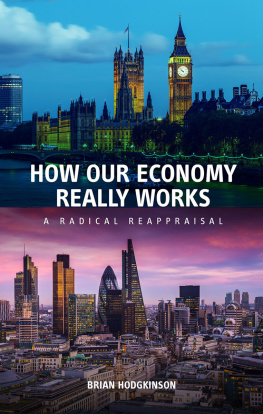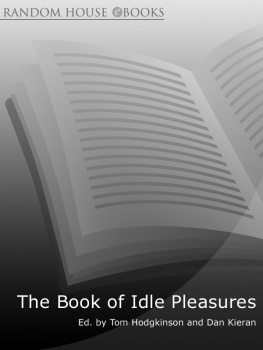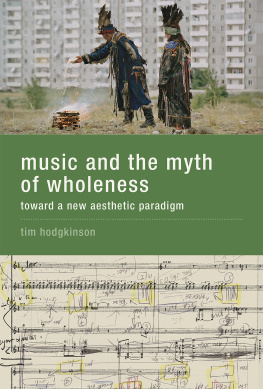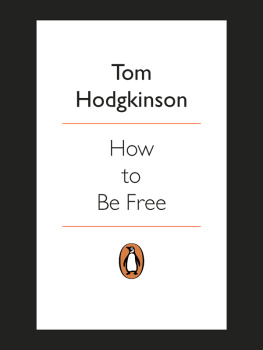Brian Hodgkinson - How our economy really works
Here you can read online Brian Hodgkinson - How our economy really works full text of the book (entire story) in english for free. Download pdf and epub, get meaning, cover and reviews about this ebook. year: 2019, publisher: Shepheard Walwyn Publishers, genre: Politics. Description of the work, (preface) as well as reviews are available. Best literature library LitArk.com created for fans of good reading and offers a wide selection of genres:
Romance novel
Science fiction
Adventure
Detective
Science
History
Home and family
Prose
Art
Politics
Computer
Non-fiction
Religion
Business
Children
Humor
Choose a favorite category and find really read worthwhile books. Enjoy immersion in the world of imagination, feel the emotions of the characters or learn something new for yourself, make an fascinating discovery.
- Book:How our economy really works
- Author:
- Publisher:Shepheard Walwyn Publishers
- Genre:
- Year:2019
- Rating:5 / 5
- Favourites:Add to favourites
- Your mark:
- 100
- 1
- 2
- 3
- 4
- 5
How our economy really works: summary, description and annotation
We offer to read an annotation, description, summary or preface (depends on what the author of the book "How our economy really works" wrote himself). If you haven't found the necessary information about the book — write in the comments, we will try to find it.
How our economy really works — read online for free the complete book (whole text) full work
Below is the text of the book, divided by pages. System saving the place of the last page read, allows you to conveniently read the book "How our economy really works" online for free, without having to search again every time where you left off. Put a bookmark, and you can go to the page where you finished reading at any time.
Font size:
Interval:
Bookmark:
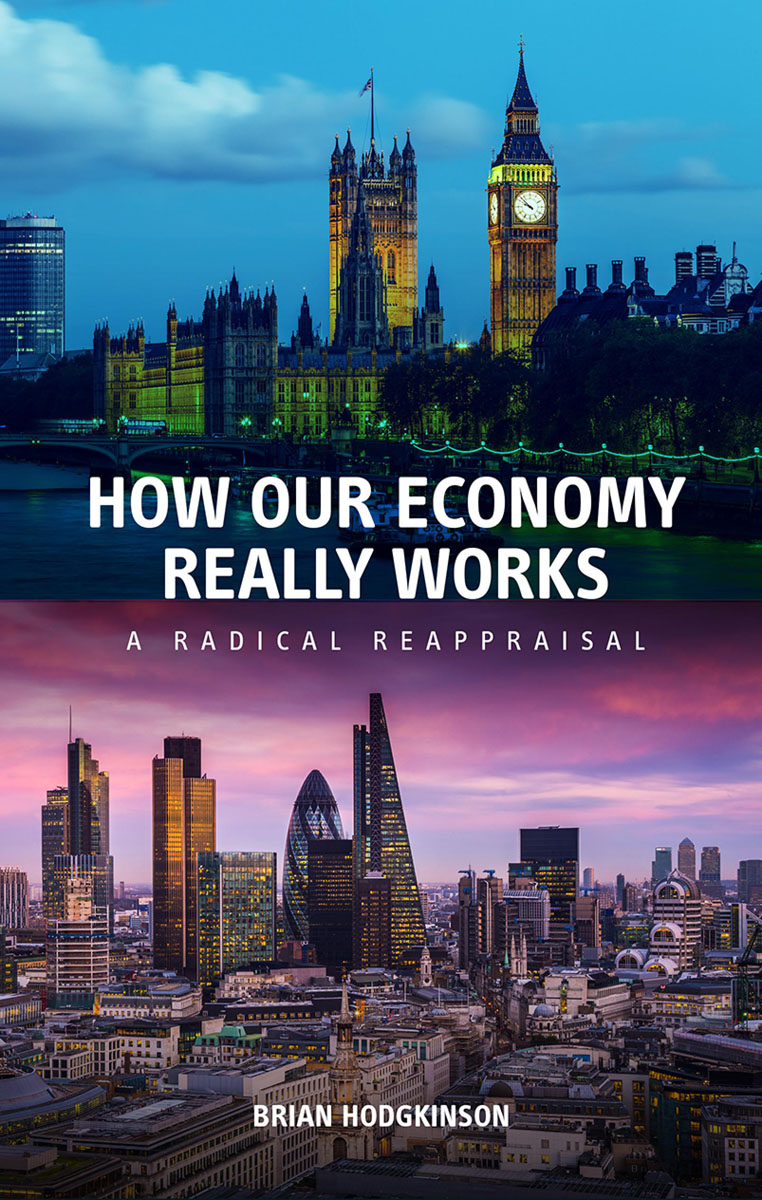

Also by Brian Hodgkinson
A New Model of the Economy
The Advancement of Civilisation in the Western World
Volume 1: Egypt, Greece & Rome
Volume 2: The Medieval World
Volume 3: The Modern World
Brian Hodgkinson 2019
All rights reserved. No part of this book may be reproduced in any form without the written permission of the publisher, Shepheard-Walwyn (Publishers) Ltd
First published in 2019 by
Shepheard-Walwyn (Publishers) Ltd
107 Parkway House, Sheen Lane,
London SW14 8LS
in association with
The School of Economic Science
11 Mandeville Place
London W1U 3AJ
www.shepheard-walwyn.co.uk
www.ethicaleconomics.org.uk
British Library Cataloguing in Publication Data
A catalogue record of this book is available from the British Library
ISBN: 978-0-85683-529-2
Typeset by Alacrity, Chesterfield, Sandford, Somerset
Printed and bound in the United Kingdom
by 4edge Limited
OVER MANY YEARS I have learnt a great deal from teachers and students of Economics, but a considerable part of this book is the outcome of informal conversations with my wife Catherine and son David over the dinner table. I am particularly grateful, however, to Dr Peter Bowman for some valuable insights. My daughter-in-law Catherine helped with several aspects of publishing. Once more I am indebted to the publisher, Anthony Werner, for his efficient and friendly services. My thanks are also extended to the School of Economic Science for enabling the book to be published.
IN ONE SENSE this book has nothing to do with Brexit. It could have been written twenty years ago, or even much earlier. Above all it is a response to the fundamental questions that have confronted the UK economy for decades, and with which successive governments of the right and the left have failed to deal adequately. Some of these questions are obvious, such as, Why does poverty still beset a large number of people, whilst others are grossly well-off?; Why are house prices continuously rising much faster than inflation, so that more and more people are left without a house of their own, or are borne down by the weight of a mortgage?; Why does UK productivity remain persistently low, despite constantly improving technology?. Other questions are less obvious, or are ignored through a belief in their arising from the natural order of things, such as Why do the majority of workers find themselves as employees in jobs that give them little real sense of fulfilment?; Why is there awful traffic congestion, despite heavy expenditure on transport infrastructure?; Why does the tax system fail to bring about greater equality, despite progressive rates of tax on incomes? All these questions, obvious or not, are perennial ones, not particularly related to membership of the European Union, although some extreme advocates of Brexit might claim that they are.
In another sense this book has a lot to do with Brexit, for the simple reason that all would agree that Brexit leaves the UK economy in a new, unprecedented position. This inevitably arouses both hopes and fears of substantial change. Such hopes and fears may alike be irrational, but even so they raise the possibility of genuine reform. Yet it is my contention that Brexit alone does not change anything fundamental about the economy.
Why this is so emerges in the argument which follows. In short, it is that what requires fundamental reform is not any features of being or not being within the EU, but more deeply embedded ones, which have generally been established for a very long time. They are principally threefold: the taxation system, the land tenure system, and the banking system. All three are profoundly interconnected. All three require root and branch reform. The presence of concerns engendered by Brexit may provide an opportunity lacking in more equable times.
Perhaps one final concession may be made to the Brexiteers. Fundamental reform of all three systems might be easier to carry through outside the EU. Full national sovereignty gives, at least, an opportunity to make changes to the very structure of the economy. Ideally these reforms would spread beyond the UK, or perhaps there would have been a chance of the EU itself adopting them under the influence of the UK as a member. But that would require an even greater revision of endemic ideas than reform in the UK alone would necessitate.
E CONOMISTS HAVE long asserted that three factors of production lie at the root of their subject: land, labour and capital. Yet in the development of the subject into theories and practical applications there has been a thorough-going analysis of labour and capital and a grievous omission of the factor of land. This is reflected in the minimal place it holds in modern text books, in popular discussion and in political debate. Indeed much of the argument about major issues, like industrial production, the distribution of income and wealth and government policy, reverts to a polarised struggle between two antagonists, labour and capital. The third factor, land, hides in the background, unacknowledged yet exerting a fundamental influence upon the outcome of the whole economic process. This book hopes to present many examples of this neglected significance of land in the economy, but one obvious example may help to clarify the point initially. The price of houses has risen continuously at a rate well in excess of the rate of inflation, causing difficulties for new buyers, creating serious problems in the mortgage market, and profoundly changing the distribution of wealth between generations and between regions. Yet what is called the house price is really a combination of land price and building price. These two prices operate quite differently and require quite different approaches by policymakers. More will be said about this one example and the impact of the error upon the economy.
Why has this lacuna in economic thinking come about? There are three reasons that have a bearing upon one another. Firstly, the land enclosure movement in Britain took place over a long period, reaching its peak in the early nineteenth century, by which time little land was left for public use and access. Private claims on land, particularly those of the major enclosing landlords, but also of all others who came to regard a piece of land as absolutely mine, developed vested interests. They preferred to ignore the older tradition of land as communal property to be used by individuals under conditions that took account of the interests of others. This absolute claim on land now extends to large commercial companies, including foreign ones, and crucially to the ownership of urban land, in which over fifty percent of the population now have a vested interest.
Secondly, economic thought developed on lines that seemed to justify the growth of such vested interests, whilst theoretical reasons appeared to support the omission of land from most of the analysis. It was no coincidence that as the private enclosure of land grew, alongside it grew a theory of supply and demand that only employs the concepts of labour and capital, and later a theory of macro-economics that treats the whole economy as producing and consuming in a landless environment. When land gets mentioned at all, it is usually treated as capital. The consequence of this egregious sleight of hand will be examined.
Next pageFont size:
Interval:
Bookmark:
Similar books «How our economy really works»
Look at similar books to How our economy really works. We have selected literature similar in name and meaning in the hope of providing readers with more options to find new, interesting, not yet read works.
Discussion, reviews of the book How our economy really works and just readers' own opinions. Leave your comments, write what you think about the work, its meaning or the main characters. Specify what exactly you liked and what you didn't like, and why you think so.

